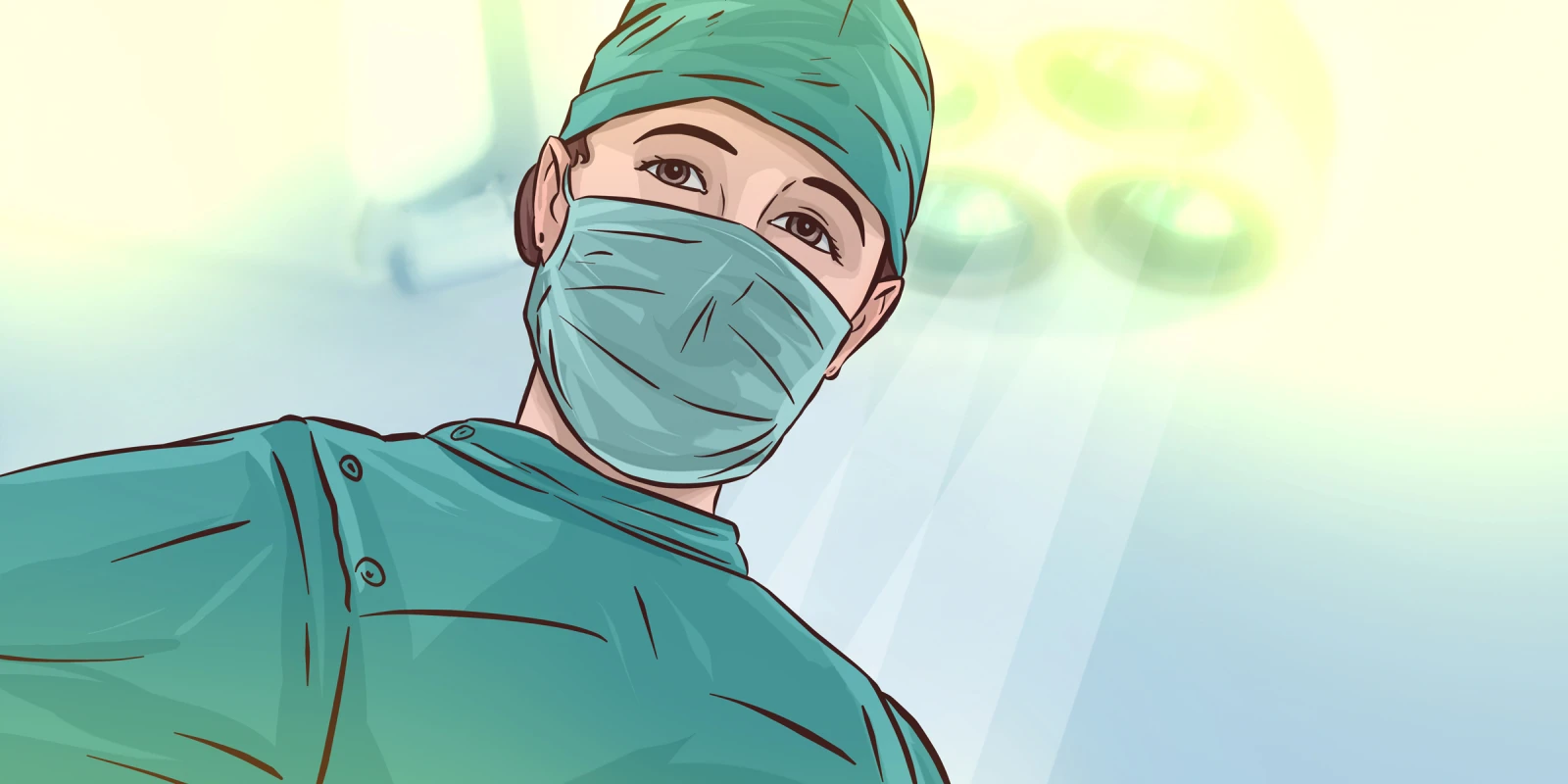There is a quote that I have loved for several years credited to J.C. Pearce. “To live a creative life, we must lose our fear of being wrong...”
When I first saw this quote housed in a square glass frame, I couldn’t help but gravitate toward it. I looked at the price tag, and ironically this small piece of advice was on sale. I grabbed the piece, unsure as to why no one else had given this frame a second glance. When I got home, to my freshly unpacked apartment, I probed for a spot where the words could be seen easily on a daily basis, as a reminder for life and surgical residency. After securing the frame to the wall, I stood back, admiring the words. I then began to reflect on my art courses in college, and how with each new technique I learned, there could be such a mix of emotions.
There was the initial fear of doing something wrong, and of not getting the technique completely perfect on the first shot. The fear of not being able to create something beautiful. The fear of having to start again. The fear of having something you had made being judged and found to be ugly. Overall, there was the overwhelming fear of failure.
For artists, you can begin to work out this fear by staring deeply at your media, whether it be canvas, paper, or clay. If you stare long enough, you begin to see something present itself from the void that your mind wants to express. With that first spark, your fear begins to ease. With each stroke, each line, and each portion sculpted, the fear gives way to joy and determination to make an idea transform into a tangible artwork. There is so much joy in creating something new, and doing something completely different than you have ever tried before. That does not mean that there is an absence of mistakes in the process. There are times when you mix the wrong shade, use the wrong type of line, or make the nose a bit too curved. There are times when the paper tears the wrong way, or the piece explodes while fired in the kiln. When these slip ups happen, the fear can reoccur so easily, and distract you from your goal. In the process, if you are not careful, it can rob you of the joy you felt mere seconds before — it rises up in your throat, like a dry knot. You begin to feel overwhelmed and hopeless. How can something you worked so hard to create be so irrevocably broken?
However, with time, another spark will light, and the process begins again. With each new piece created, you move through this cycle more easily, until your instincts take hold. After a time, when these issues come your way, you realize that although something may go wrong in the creative process, it does not necessarily mean that it is a failure. Rather, it is an opportunity to learn, begin again, and create something new from the pieces you have been given. You then move into a phase where the fear becomes secondary. Instead of panicking, your mind remains calm, and taking on these challenges becomes second nature; you begin to find your rhythm and take them in stride.
Even though it has been several years since I found this advice in the clearance bin, I still look to the words as a reminder. Each time, taking a moment to reflect on all that has happened in my life and residency. At this point, I would like to make an addendum. To live a medical life and a surgeon’s life, you must lose your fear of being wrong. There is so much we are required to learn during the years of residency. At times, the pressure can be so daunting that it seems impossible to survive.
While reflecting on residency so far, I can begin to see the parallels between an artist’s journey to create, and a resident’s journey to become an attending. Although the situations are different, the types of initial fear are mirrored: the fear of failure, the fear of making mistakes, the fear of having to start again. However, in order to function as a physician, you must accept that you will make mistakes, and that you will make the wrong call. You must accept that you will have patients that recover and others that die, even if you do everything right. You must also accept that there is a learning curve in everything, and that everyone’s learning process is different — while some may be savants with a technique, you may require more time for development. Despite variations in each resident’s path, the goal remains the same: to become a surgeon that aspires for excellence and assists patients in any way possible. Although you may struggle and fall, you cannot let the fear overtake the joy of operating.
Lastly, there is an additional lesson: you must embrace your fear. While you must lose your fear of being wrong, and continue to calculate each decision, there will be a slight fear that remains. This is to be expected, as every decision we make can change a life for the better or for the worse. But, if you choose to be cognizant and respect this fear, without allowing it to overcome you, it will benefit you in the end. It will keep your mind inquisitive, causing you to strive to be better and to learn more as a physician.
While I still remind myself of these lessons on occasion, there is one segment I wish I could tell my past self: being a surgeon is much like being an artist. No matter what happens along the way, do not lose your joy in creating, in learning something new, or in life itself. Recognize and embrace your fear ... and do whatever makes you scared. You will never know what you are truly capable of, until you try.
Dr. Emily Klosterman is a general surgery resident originally from Western New York. She is a graduate of the Lake Erie College of Osteopathic Medicine. When not in the OR, she can be found painting, drawing or exploring West Florida for inspiration for her next piece of artwork. This research was supported (in whole or part) by HCA Healthcare and/or an HCA Healthcare affiliated entity. The views expressed in this presentation represent those of the author and do not necessarily represent the official views of HCA Healthcare or any of its affiliated entities.
Image by DynamoClock / Shutterstock







